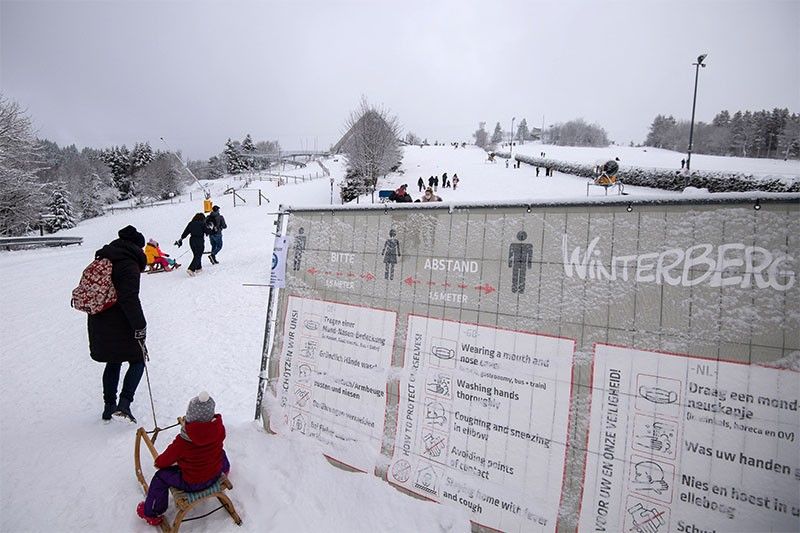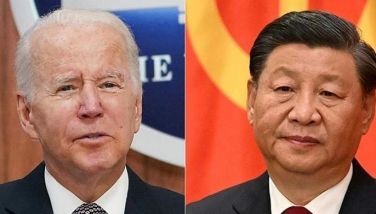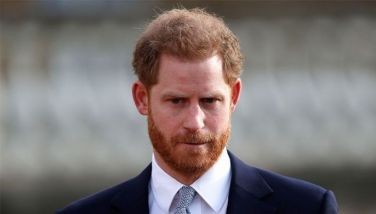Germany targets New Year's parties, sports in new Covid curbs

FRANCFORT, Germany — Germany's leaders on Tuesday limited private New Year's parties to 10 people and banned spectators from football games to stem Omicron's spread, stopping short of imposing new coronavirus curbs before Christmas.
Speaking after talks with Germany's 16 regional leaders, Chancellor Olaf Scholz said the country was facing "a fifth wave" as the new, highly contagious Omicron variant sweeps the globe.
"We are all tired of the pandemic, but that doesn't help us, we must once again stand together," Scholz said as he announced new measures that will affect the vaccinated as well as the unvaccinated.
From December 28, Germany will close nightclubs and dance venues, he said.
In a bid to avoid large celebrations over New Year's, just 10 people who are vaccinated or have recovered from Covid-19 will be allowed to gather for private parties.
Germany had already announced a ban on firework sales for the second year to discourage revellers.
"This is not the time for parties and cosy evenings with lots of people," Scholz said.
Unvaccinated people are only allowed to mingle with two people from another household.
The rule does not apply to children up to 14 years old.
Also from December 28, large organised events "will no longer take place with spectators, this applies in particular to football games," Scholz added.
Germany's first division Bundesliga is breaking until January 7, but the return to so-called "ghost games" had been widely expected after the region of Bavaria already took the step earlier this month.
Scholz's government and state premiers however did not heed calls from the Robert Koch Institute (RKI) health agency to take "immediate" action against Omicron.
Earlier on Tuesday, the RKI issued updated recommendations calling for "maximum contact restrictions", alongside other steps such as halting non-essential travel and extending school holidays.
But Germany's new Scholz-led government, which took over from Angela Merkel's cabinet earlier this month, has so far ruled out imposing a lockdown.
Scholz said he expected Germans to act "responsibly and cautiously" over the Christmas period.
Emergency plans
Germany recently managed to slow a fierce fourth wave of the pandemic, in part by ramping up booster vaccinations and excluding the unvaccinated from large parts of public life.
The European Union's most populous country added some 23,000 new coronavirus cases on Tuesday, according to the RKI, down from a peak of over 75,000 in late November.
The fast-spreading Omicron variant however is expected to become the dominant strain "in a few weeks" and fuel a surge in cases, Scholz said, pointing to the experiences of countries like Britain, Denmark and the United States.
The German government has asked operators of critical infrastructure — including healthcare, policing, fire services and energy suppliers — to review their emergency plans in case of staff shortages because of illness.
- Latest
- Trending





























